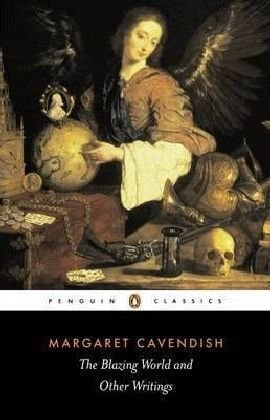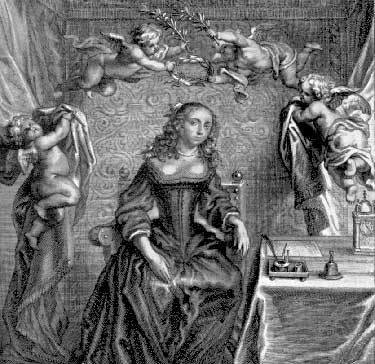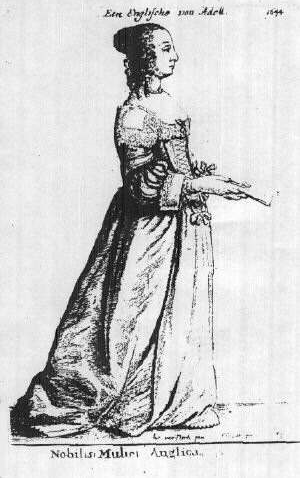Our Elder World, with all their Skill and Arts,
Could but divide the World into three Parts:
Columbus, then for Navigation fam'd,
Found a new World, America 'tis nam'd;
Now this new World was found, it was not made,
Onely discovered, lying in Time's shade.
Then what are You, having no Chaos found
To make a World, or any such least ground?
But your Creating Fancy, thought it fit
To make your World of Nothing, but pure Wit.
Your Blazing-World, beyond the Stars mounts higher,
Enlightens all with a Calestial Fier. |



